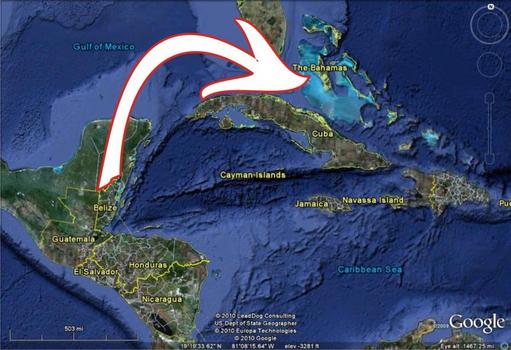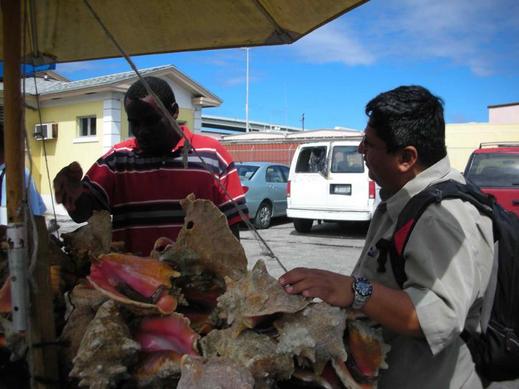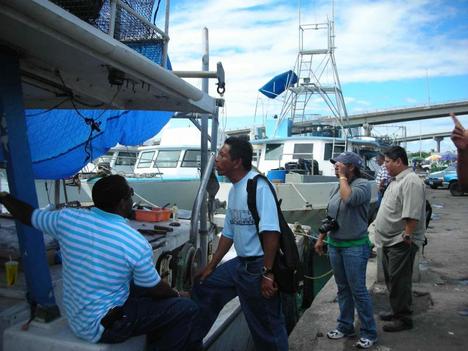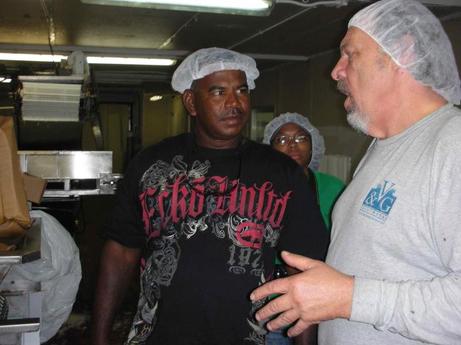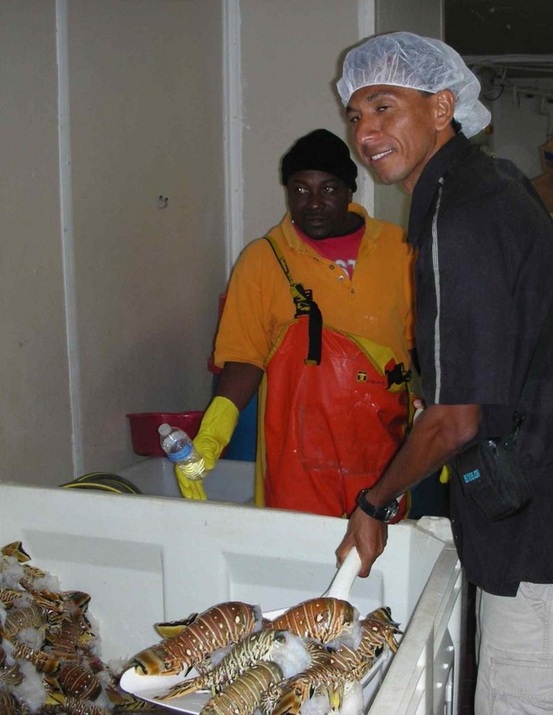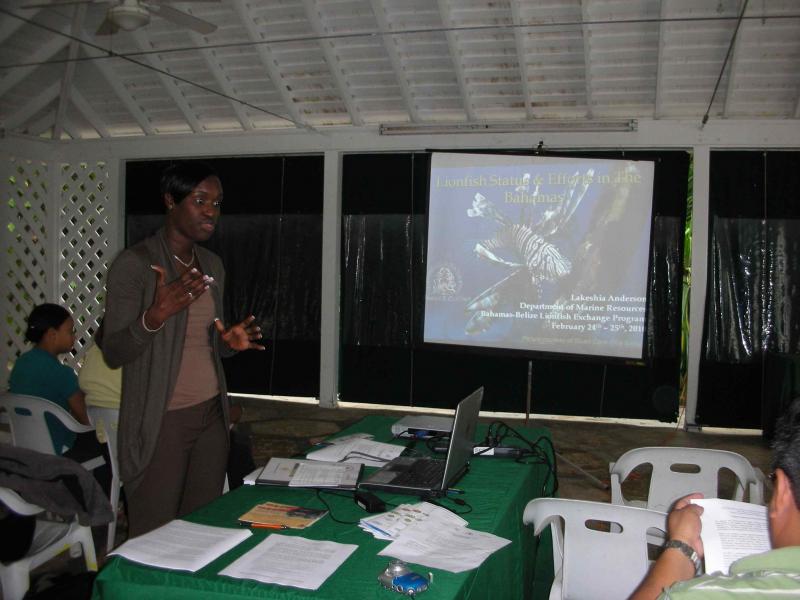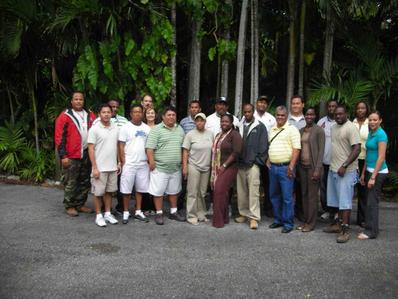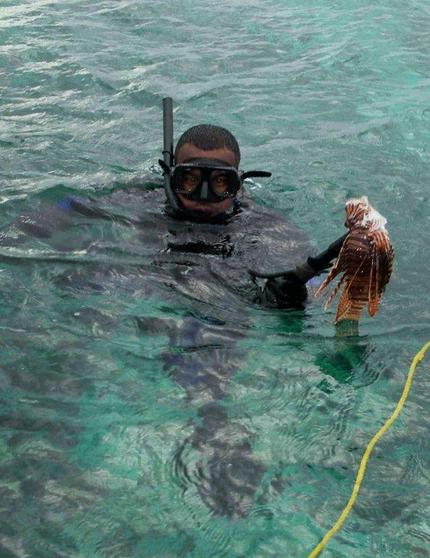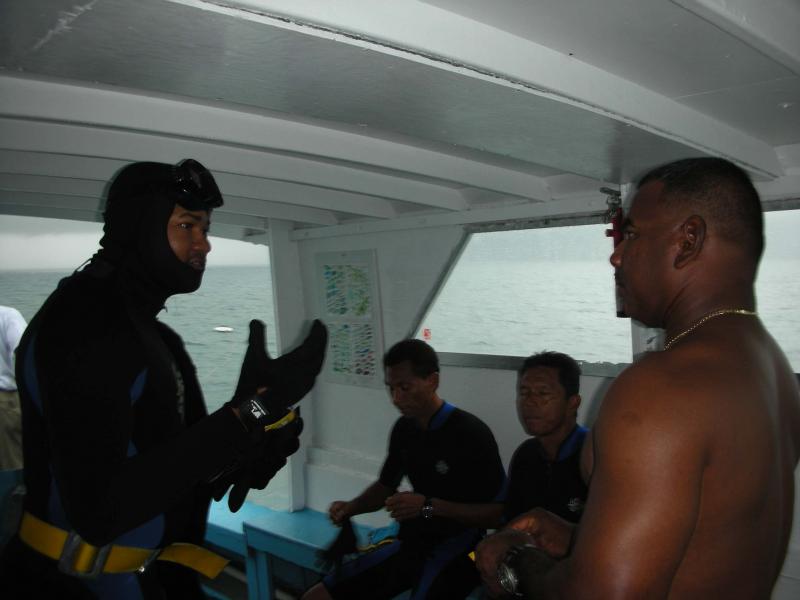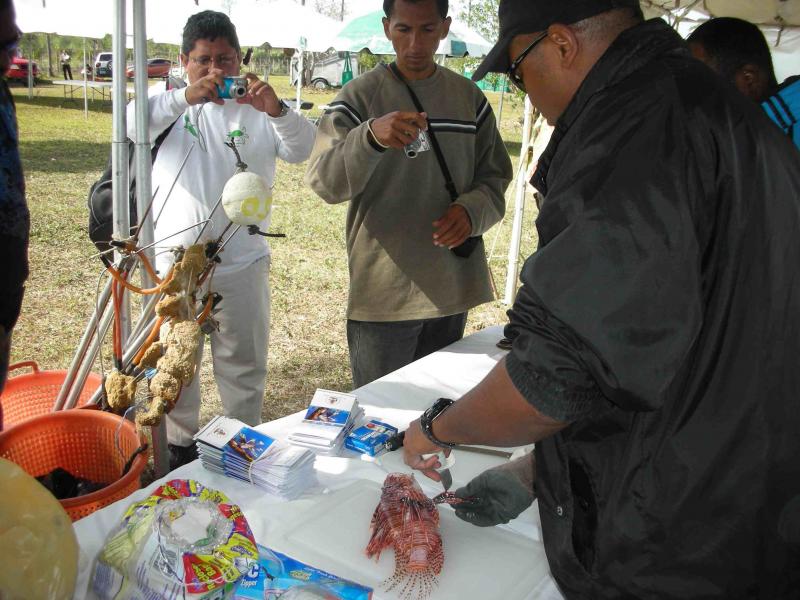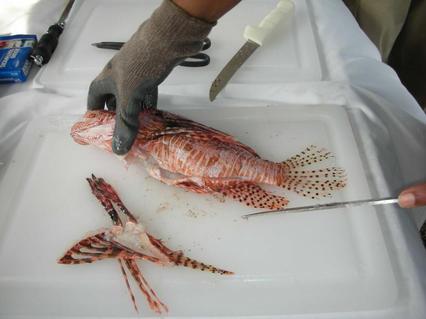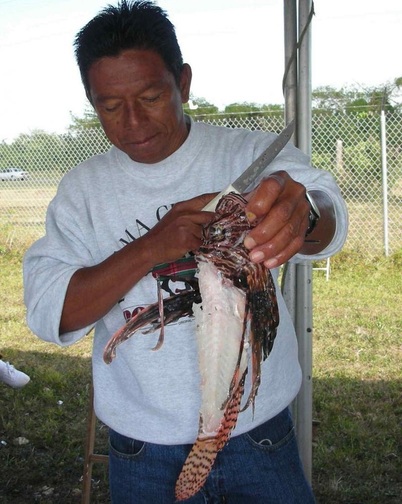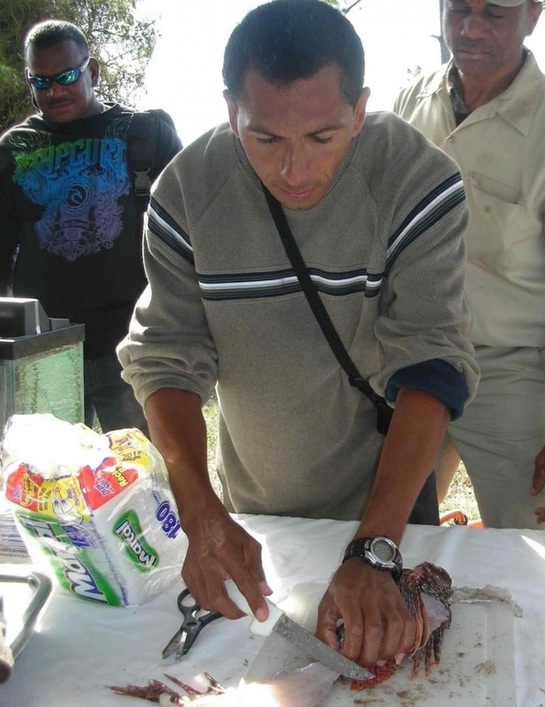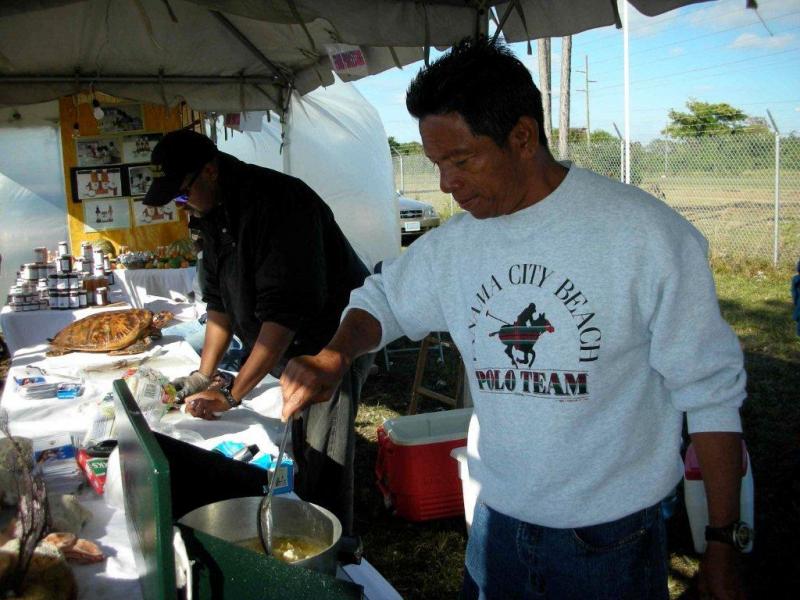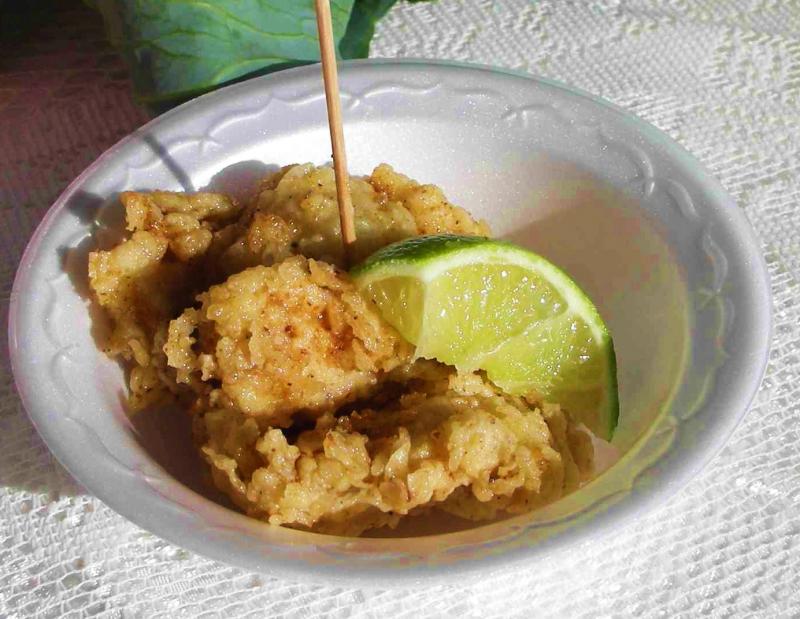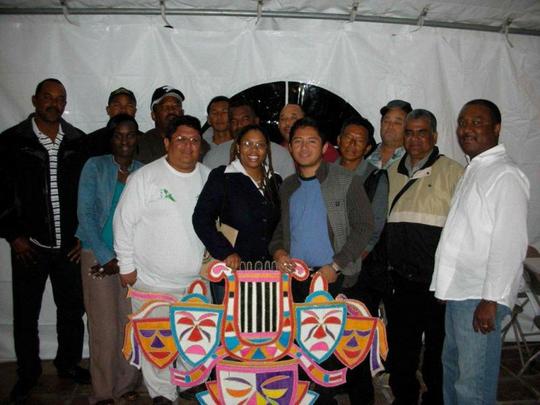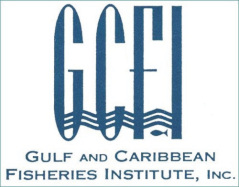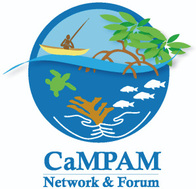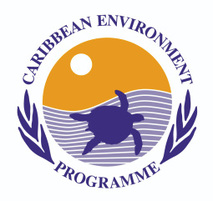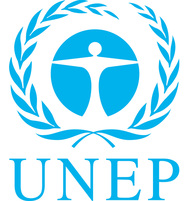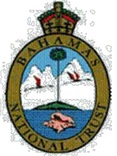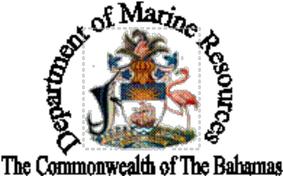GCFI Fishermen Exchange Program
In 2010 ECOMAR received a grant from the Gulf & Caribbean Fisheries Institute's (GCFI) Small Grant Fund to send six representatives from Belize to the Bahamas to learn about lionfish management. This program was very timely in implementing the Belize Lionfish Program as it allowed Belize fishermen to learn first hand what the Bahamians were doing to manage lionfish so they could return to Belize and share this information with their colleagues.
Belize Bahamas Fisherman Exchange: Lionfish Management Training Program
|
The Belize and Bahamas Fishermen Exchange Program funded by the Gulf & Caribbean Fisheries Institute through the United Nations Environment Program (UNEP), Caribbean Environment Program (CEP), and the Caribbean Protected Areas Management Network and Forum (CaMPAM) has been very beneficial to the Belize Lionfish Program as it has enabled Belizean fishermen, the Belize Fisheries Department and ECOMAR to travel to the Bahamas to participate in a Lionfish Training Workshop that was conducted by the Bahamas Department of Fisheries in conjunction with The Nature Conservancyand the Bahamas National Trust.
The workshop included a classroom training session, field networking with Bahamian fishermen, capturing lionfish and preparing lionfish for consumption. The Belizean fishermen also had opportunity to liaise with the fishermen and organizations involved in managing the lionfish populations in Bahamas. Due to the widespread invasion of lionfish, the Bahamas Fisheries Department is now developing creative strategies to promote lionfish as a commercial fishery in the hopes of controlling their population. The fishermen from Belize learned first-hand how their counterparts in the Bahamas are managing this invasive species and how to safely capture, handle and prepare lionfish to consumption. Back home in Belize the fishermen will be able to share the lessons learned with their counterparts on a day to day basis and also at the workshops that will be held country wide. Additional goals not expected were also realized and the Belize Bahamas Fishermen Exchange Program is discussed in detail below. |
Objectives
|
The primary objective of the project is to provide Belize fishermen with an opportunity to learn how the Bahamas is managing the lionfish invasion in their waters. The participants from Belize can then return home and pass this knowledge on to their counterparts in Belize on a day to day basis and also in conjunction with the 12 Lionfish Outreach Workshops that will be held in Belize that is part of the Belize Lionfish Project funded by UNDP COMPACT. A summary of the Project Objectives, Indicators of Success and Level of Completion are outlined in the table below.
|
The Belizean fishermen that participate in GCFI Fisherman Exchange program attended three days of activities organized by Bahamian counterparts. The workshop included a classroom training session, field networking with Bahamian fishermen, capturing lionfish and preparing lionfish for consumption. The Belizean fishermen also had opportunity to liaise with the fishermen and organizations involved in managing the lionfish populations in Bahamas. The daily activities undertaken by the group are outline in the section below.
The Bahamas counterparts, The Nature Conservancy and the Bahamas Department of Marine Resources along with the Bahamas National Trust provided three days of activities for the participants of the Belize-Bahamas Lionfish Fishermen Exchange Program. The events that achieved the project objective are outlined below. |
Day 1: Interaction Between Fisherman: Visits to Seafood Processing Plants & Fish Markets
Day 2 Morning - Lionfish Management WorkshopThe Bahamas National Trust hosted a workshop focusing on status and efforts in Bahamas for the invasive lionfish. The Bahamas Marine Resources Department discussed detailed components of their National Lionfish Response Plan and management strategies currently implemented throughout the Bahamian Archipelago. Due to the extent of the lionfish invasion of Bahamian waters, they are now being promoted as a commercial fisheries species and management response consists of safe capture, handling, and cooking initiatives. Discussions for recommendations and planning strategies were opened with the Belize team.
|
Day 2 Afternoon - Safe Capture of LionfishA lionfish field collection exercise was carried out at the Mahoni Wreck, a popular dive site off Paradise Island. The Bahamian team outlined techniques for spearing and proper collection and handling of lionfish. In-water collection was carried out and 11 lionfish were captured and recorded.
|
|
|
|
Day 3 - Preparation of Lionfish for Consumption
|
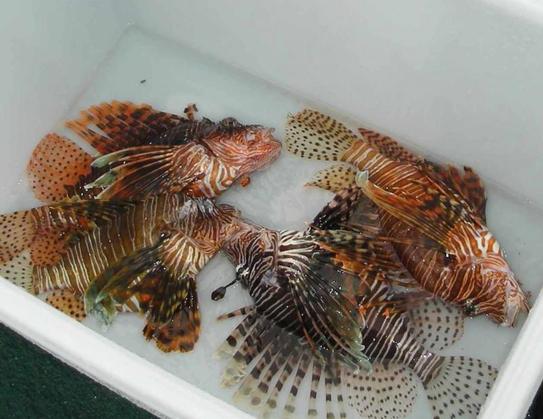
Lionfish captured on their afternoon day in the field at Mahoni Wreck. The lionfish will be prepared for consumption at the Marine & Agrobusiness Expo the following day. A fisherman reported to Mr. Valentine Rosado that he receives orders for lionfish from restaurants and has fishermen capture them. He pays the fishermen US $3.00 per lionfish and resells it for US $7.00.
|
|
Day 2 Evening - Farewell ReceptionBahamas Commercial Fishers Alliance hosted a reception for Belize team on the eve of their departure. The reception provided an informal opportunity for fishermen interaction. Bahamas fishermen believe fishing with scuba tanks and compressor is beneficial to coral reefs as it maximizes time underwater to catch legal size fisheries products and exact species of commercial fisheries. Belize counterparts provided recommendations and facts from the vantage point of an overfished industry as a consequence of unsustainable fishing practices.
Acknowledgements
The fishermen and other participants from Belize are very grateful for the opportunity to travel to the Bahamas and learn firsthand how the Bahamas have been managing lionfish as well as to have the opportunity to learn other valuable lessons during exchange program.
This project would not have been possible without the invaluable assistance provided by Mrs. Lakeshia Anderson and the Bahamas Department of Marine Resources, and Ms. Felicity Burrows, Marine Specialist for The Nature Conservancy in the Bahamas, in the initial planning stages of the Belize-Bahamas Fishermen Exchange – Lionfish Management Training Workshop, and in organizing the workshop and other activities in the Bahamas. Thanks too to Mr. Fernando Secaira, Marine Specialist for The Nature Conservancy in Mexico, for making the introductions between ECOMAR and their office in the Bahamas. ECOMAR would also like to thank the team from the Gulf & Caribbean Fisheries Institute (GCFI); especially Dr. Alejandro Acosta, Mr. Bob Glazer and Dr. Mel Goodwin; the Caribbean Environment Programme (CEP); UNEP (United Nations Environment Programme) and CaMPAM, for awarding a 2010 Small Grant Fund to the Belize-Bahamas Fishermen Exchange – Lionfish Management Workshop, as it has enabled us to improve the Belize Lionfish Project. |
Lessons LearnedThe GCFI Belize & Bahamas Fishermen Exchange has served as an invaluable opportunity to share lessons learned from the Bahamas lionfish status and management efforts. The Belize delegates have committed to share acquired techniques including collection and management protocols that they will share at outreach workshops that will be held throughout fishing communities in Belize. The fishermen will also be able to share experiences and knowledge with other community members on a day to day basis.
The Belize & Bahamas Fishermen Exchange Lionfish Management Training Workshop proved to not only be educational with regards to the original objectives of learning how to safely capture, handle and prepare lionfish, but it also gave the Belize fishermen an opportunity to see firsthand how fishermen in the Bahamas are organized and manage their fishery resources. Each participant in the exchange program reported that the exchange program was very informative and they were extremely thankful for having participated in the program. The knowledge learned in the Bahamas will be used in implementation of the Belize Lionfish Project. Interviews will be conducted with the participants of the program and will be used in developing the Belize Lionfish Project’s Public Service Announcement in Belize. The participants will also assist at the lionfish outreach workshops that will be held through Belize from April - July 2010 in Belize. This exchange program has positively impacted the Belize Lionfish Program that is currently underway and has enabled ECOMAR to provide an additional activity that compliments the program as it provided the hands on training needed for successful implementation of the outreach workshops. They would also have the opportunity to liaise with the fishermen and organizations involved in managing lionfish populations in the Bahamas and gain knowledge on how this invasive species can be managed in Belize. Due to the widespread invasion of lionfish, the Bahamas Fisheries Department is now developing creative strategies to promote lionfish as a commercial fishery in the hopes of controlling their population. Belize and the rest of the Atlantic Ocean nations will also have to address the invasive lionfish over the years and projects like the Belize-Bahamas Fishermen Exchange will enable countries to liaise and learn from one another. Unexpected Lessons Learned - Impacts of Tourism
While traveling around Nassau, Bahamas the Belize team members had the opportunity to note similarities between the two countries. One similarity is that both economies rely on healthy marine resources and the tourism industry. Many fishermen in Belize are becoming tour guides as fishery stocks decline. That the Belize fishermen have witnessed firsthand how important the tourism industry is to the Bahamas, they can possibly envision the progress that some areas of Belize may soon experience with increased tourism.
|
Participants
|
|

